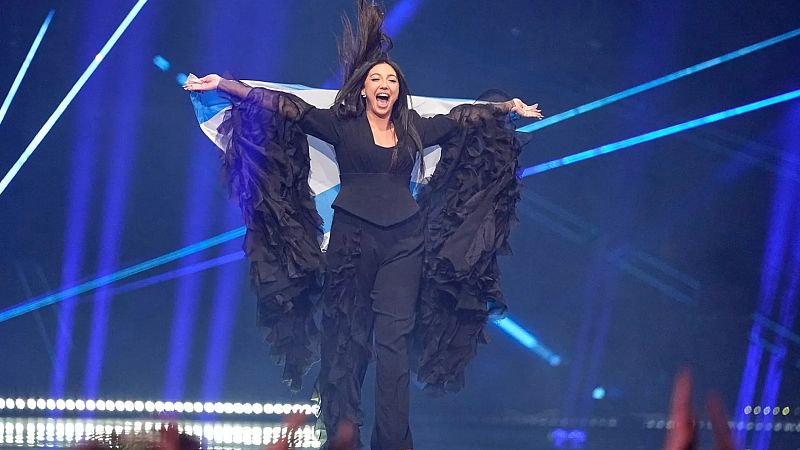
The Eurovision Song Contest, once again, has been permeated by political messages that transcend the show and surround every action of the historic event, even two days after its end.
This year, the big winner was Austria's JJ with his pop opera 'Wasted Love'. Israel, a country questioned over its freedom to participate in the European festival after its invasion of Gaza, came second with singer Yuval Raphael and her song 'New Day Will Rise'.
Sánchez's call for Israel to step aside for invading Gaza
On Monday, Spanish Prime Minister Pedro Sánchez made his position clear. Speaking at the presentation of a report by the Cotec Foundation, Sánchez said that "no one was shaking their heads" when Russia was banned from international competitions and Eurovision after its invasion of Ukraine, and called for the same ban to be applied to Israel over the Gaza war.
Sánchez's comments were reinforced by a message shown live on state television 'Televisión Española' before the singing started, published in Spanish and English in white letters on a black background: "In the face of human rights, silence is not an option. Peace and justice for Palestine", said the Spanish public broadcaster.
RTVE could be fined for this message, as the European Broadcasting Union ('EBU'), organiser of the festival, advocates the political neutrality of the event, which, however, has been affected by geopolitical issues for years. The EBU had already warned the national broadcaster not to broadcast messages about Gaza, threatening it with a fine.
Responses to the 'Televisión Española' manifesto were swift. For example, the president of the Community of Madrid, Isabel Díaz Ayuso, posted on X: "RTVE in this gala is by far the most hijacked by the shameful politicisation of everything public in the hands of its government. A symptom of weakness and decadence, of the regime".
The controversy with the public's votes
However, the second place of Israel, this year represented by Yuval Raphael, survivor of the Hamas attacks of 7 October 2023 and booed at different moments of the festival, has aroused more than a few suspicions about the country's interference in the votes.
RTVE' has requested an audit of the national audience votes, as the festival has informed the Spanish public broadcaster that it received more than 140,000 votes during the final, but it hasn't provided a breakdown to explain how Israel obtained the maximum score, the 12 points of the Spanish televote. In contrast, Melody, the Spanish representative, received only 10 points from the other countries, coming second to last with 'Esa Diva'.
For its part, Belgium's Dutch-language public broadcaster 'VRT' has also today called on the Eurovision organisers to be "completely transparent" about the voting system and rules, and even questioned the broadcaster's participation in future editions of the European festival. VRT' interrupted its broadcast during Israel's performance in the final, as it did in 2024, criticising human rights violations in Gaza, the silence of the press and calling for a ceasefire in the Gaza Strip.
Europe's national broadcasters were not alone: more than 70 former Eurovision contestants signed a letter calling for Israel's exclusion, including last year's winner Nemo, who told 'HuffPost UK' that "Israel's actions are fundamentally at odds with the values that Eurovision seeks to uphold: peace, unity and respect for human rights".
It is worth noting that one of the central sponsors of the festival is the Israeli company Moroccanoil, a New York-based cosmetics brand founded in 2007, which has invested in the European contest in 2020, 2021, 2023 and 2025.
It is clear that, on a political level and despite the organisation's requests, Eurovision is not yet over, it is still active and marked by political messages and the demand for transparency that several European media hope to obtain in order to turn the page, at least as far as the festival is concerned.







